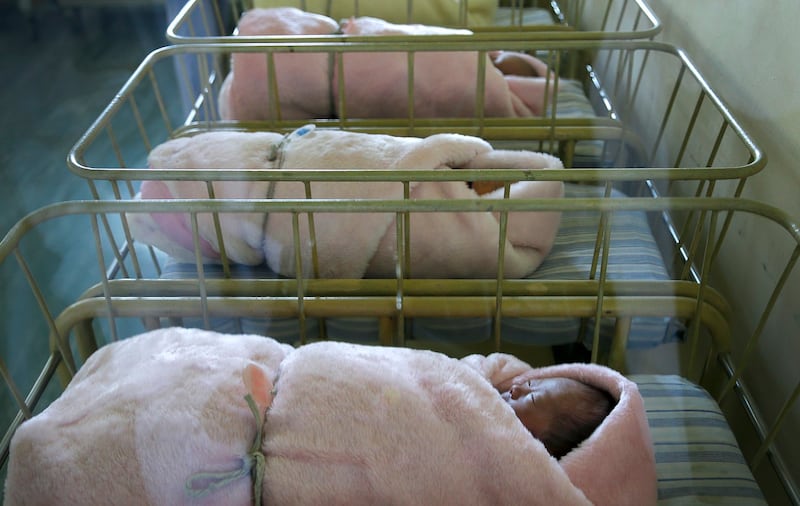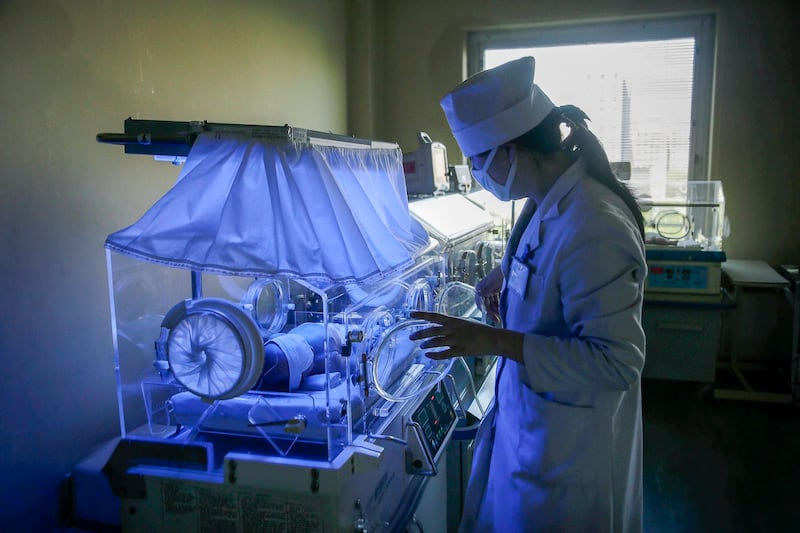[ Read a version of this story in KoreanOpens in new window ]
North Korea is attempting to slow its declining birth rate by punishing doctors who perform abortions and people who sell smuggled contraceptive pills, residents in the country told Radio Free Asia.
Abortion has been illegal in North Korea since the widespread famine of the 1990s killed as many as 2 million by some estimates.
Still, to boost their small government salary, some North Korean doctors have secretly installed medical equipment in their homes to perform abortions, and charge about 30,000 won (US$1.76) per abortion, sources told RFA Korean.
That’s enough to buy 4.5 kilograms (10 pounds) of rice and is the average North Korean worker’s monthly salary – hardly enough to live on.
“There were days when they performed up to three surgeries a day,” a resident who works in the medical sector in the northern province of Ryanggang said on condition of anonymity for security reasons.
But those who get caught are in hot water.

At a “trial” held on Aug. 28 in a conference room at a university hospital, the head of the obstetrics and gynecology department at the Paegam County Hospital who had performed abortions in his home was sentenced to five years in prison, the resident said.
He said another doctor from the Unhung County Hospital was sentenced to three years because in June his patient died while he was performing an abortion at his home.
“Typically, OBGYN doctors go to a pregnant woman’s home to perform abortions in order to leave no trace, but these two doctors … had set up medical equipment in their own homes,” the resident said.
To discourage doctors from earning money by providing private medical services, the government had boosted their monthly salaries more than 40-fold to between 80,000 and 180,000 won ($5-$11), the sources said, but many doctors still provide private treatment.
Alarming decline
According to the World Bank, the country’s birth rate in 2021 was estimated to be 1.81 births per woman, far higher than South Korea at 0.81, Japan at 1.30 and China at 1.16 that year, but still well below the 2.1 birthrate necessary to replace the population.
The birth rate might in fact be even lower, closer to 1.3, according to a paper published in December by Lee Joo Yung, an economist at the Bank of Korea in Seoul.
Alarmed by the declining rate, North Korea has enacted policies that reward families for having more children, including by providing extra food for those with four children or more, and building new homes for families raising six or more.

But it hasn’t worked. In late 2023, North Korean leader Kim Jong Un cried as he spoke at a National Conference of Mothers, lamenting that the country’s birth rate has been decreasing for the past 10 years and imploring women to have more children.
The decline became sharpest during the pandemic, so starting in 2023, private sale of contraceptive pills and devices became illegal.
Conceptive ban
Another Ryanggang resident told RFA that the merchants who sell contraceptives are being “punished in droves.”
“On the 22nd of last month, three vendors selling contraceptives at the Hyesan market had their stalls confiscated and were each fined 300,000 won ($17.65),” she said, referring to a market in the border city of Hyesan.
“At the end of July, two vendors selling Chinese-made contraceptives at the Hyesan market also had their stalls confiscated.”
The merchants were then banned from ever returning to the marketplace to do business, the second resident said.

“All the contraceptives currently being sold by merchants are smuggled in from China,” she said. “Border security has been strengthened further since 2020, making smuggling through the Yalu River and Tuman River unthinkable. However, small-scale drug smuggling is still ongoing through the sea.”
She said fishermen are able to smuggle the medicines in with the daily catch and then the drugs spread across the country.
“The smuggled Chinese contraceptive pill, commonly referred to as 'Levono' by the people, costs 20,000 won ($1.17) per pill,” she said.
This contraceptive pill, which is taken once a month, is in such high demand among young women that it’s often difficult to find, she said.
Though RFA was not able to confirm the exact medication, the resident may have been referring to levonorgestrel, an emergency contraceptive marketed in the U.S. under the brand Plan B One-Step, Julie and others.
Banning contraceptives and abortions might not have a major effect on the birth rate amid a growing reluctance among women to get married given North Korea’s harsh living conditions, the resident said.
“Young women need to get married first to have many children, but young women, especially in urban areas, are giving up marriage, so the birth rate is decreasing over time,” she said.
Translated by Claire S. Lee and Leejin J. Chung. Edited by Eugene Whong and Malcolm Foster.
